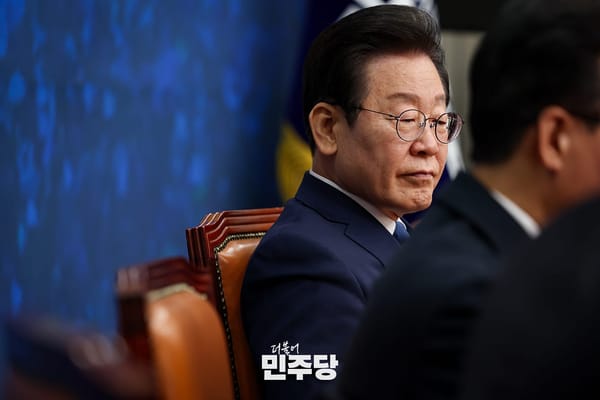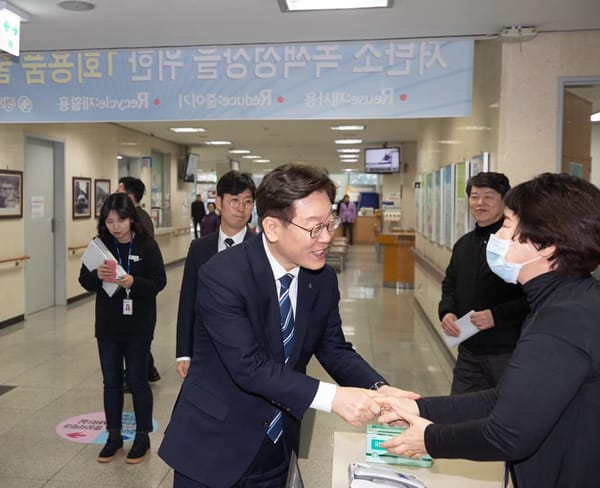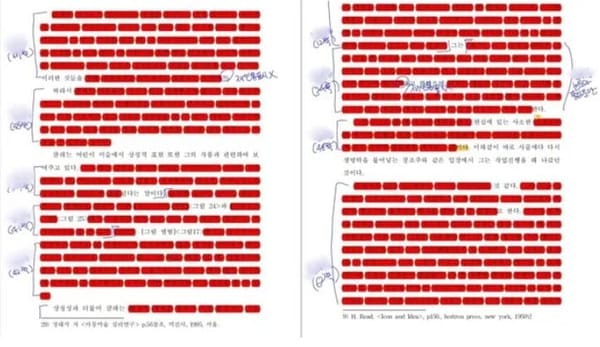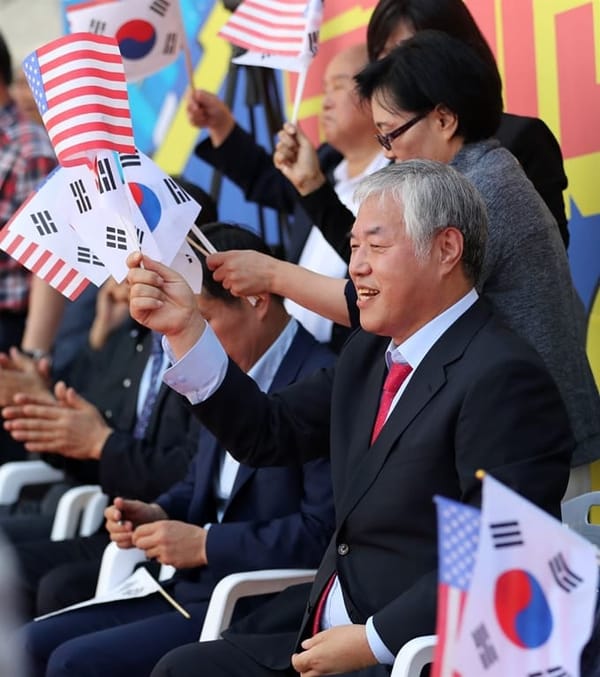Photo: President Moon Jae-in presides over the Blue House senior staff meeting. Credit: Website of the Office of the President.
The political calendar in 2021 for South Korea is filled with excitement. In March 2021, President Moon Jae-in 문재인 will enter the fifth and final year of his presidency. As South Korean presidents may only serve a single five-year term under the constitution, the next presidential hopefuls will spend 2021 jockeying to establish their positions. At present, most polls show two liberals and one conservative as the frontrunners : Gyeonggi-do Province Governor Lee Jae-myung 이재명 경기도지사 and Democratic Party Chairman Lee Nak-yeon 이낙연 민주당대표 on the liberal side, and Supreme Prosecutor Yun Seok-yeol 윤석열 검찰총장 on the conservative side. The overall race favors the liberals; in most polls, the two Lees occupy the top two spots, followed by Yun. The two Lees represent the two main factions within South Korea’s liberals, with Gov. Lee more popular with the party’s urban middle class, and Chairman Lee finding more support in the more moderate rural voters in the southwest. (See TBR’s previous coverage on Lee versus Lee here.)
Yun’s emergence as the leading conservative candidate, following his year-long resistance against the Moon administration’s attempts to reform the Public Prosecutors’ Office 검찰청, is a double-edged sword for the People Power Party 국민의힘. On one hand, it is an improvement that the conservative voters are finding their champion, as no conservative politician earned more than 3% support as recently as October of this year. On the other hand, Yun, as a politically neutral civil servant (at least officially,) cannot join the PPP. Having Yun receive the spotlight outside of the conservative party structure takes the political initiative out of the PPP’s hands. But if Yun should join the PPP, a significant part of his appeal - of being an independent maverick - would be diminished. This, perhaps, is the reason why Yun did not simply resign and enter politics after the Justice Ministry 법무부 suspended him for two months. If Yun persists in his post rather than joining the PPP, the conservatives may face the nightmare scenario of Yun sucking the air out of the conservative party’s presidential candidate, or worse, splitting the conservative votes and producing another Democratic Party victory.
But of course, South Korean politics is known for its dynamism because nothing goes according to plan. A potentially major turning point is the pair of by-elections for the Seoul 서울 and Busan 부산 mayor seats in April 2021. Together, the two cities represent a quarter of all South Koreans; anyone who wins either position will immediately be considered a viable presidential candidate. For example, it is easy enough to imagine a conservative win in the Busan mayor race (where they are currently favored), after which the new Busan mayor emerges as the face of the conservative resistance to the Moon administration. All of this will set up an interesting year for politics in 2021.








